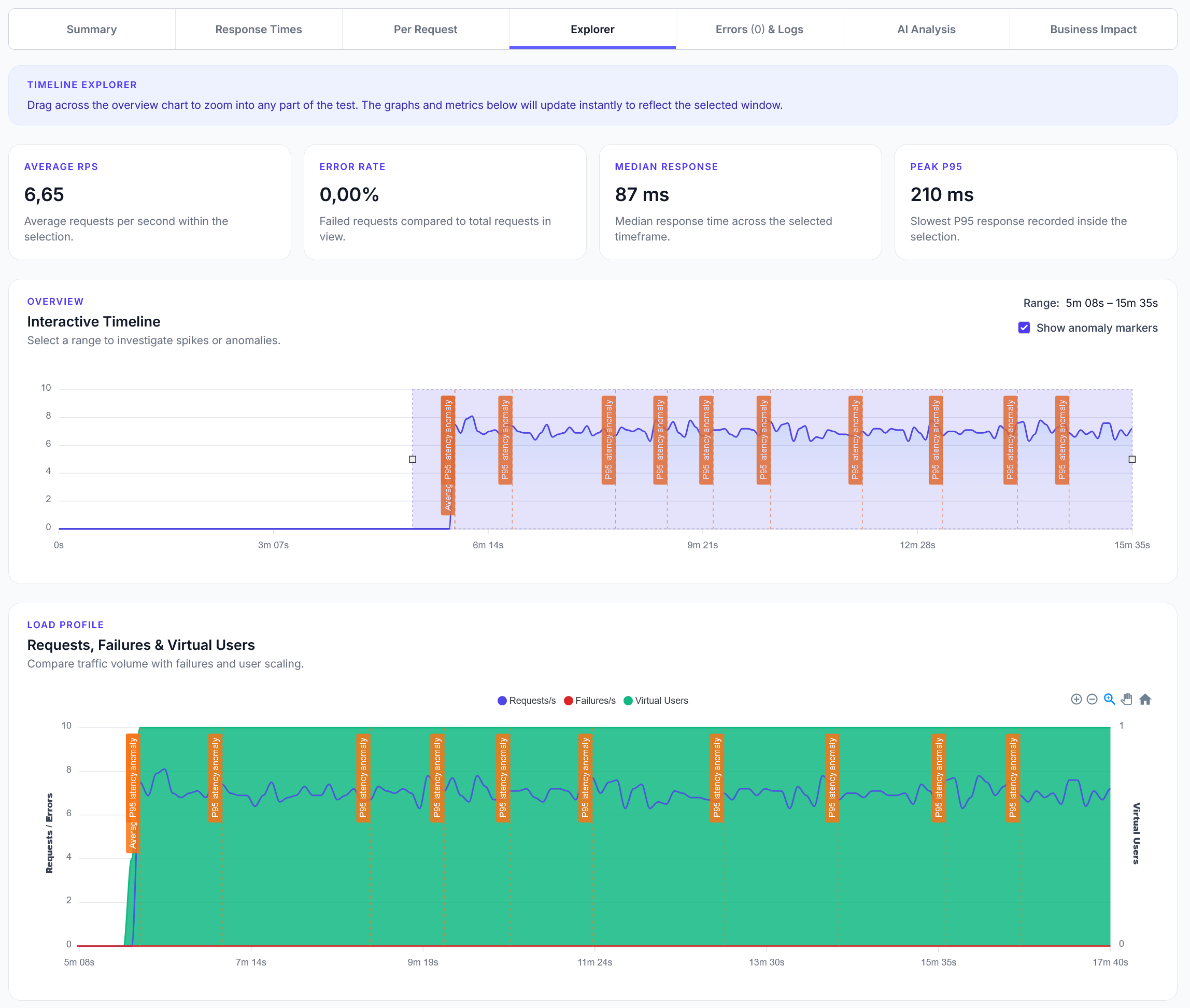
Explorer reports addition
We have added a new Explorer feature to reports, with a timeline scrubber and easy anomaly detection.
Ready-to-use locustfile examples for LoadForge. Copy and paste these scripts directly into your load tests.
Browse by category below, or use our AI wizard to generate custom tests.

Choose from our curated collection of production-ready locustfile examples. Each category contains battle-tested scripts you can use immediately.
Basic guides for beginners
Login flows, tokens, and security testing
React, Next.js, WordPress, and more
Optimization and advanced techniques
WebSockets, SSE, messaging systems
GraphQL, gRPC, and complex scenarios
Headers, crawling, and web scraping
Database, cache, file upload, and search testing
Shopping carts, payments, inventory, and CMS testing
API versioning, batch operations, rate limiting, and pagination
Quality assurance and comprehensive testing validation
Chaos engineering, contract testing, and advanced validation techniques
Multi-region testing, CDN performance, and internationalization
GDPR, security headers, audit logging, and data retention testing